To strengthen ThaiBev’s human capital, create oneness in the organization, and prepare employees for the fast changing
environment, ThaiBev identified seven strategies for human capital management as follows:

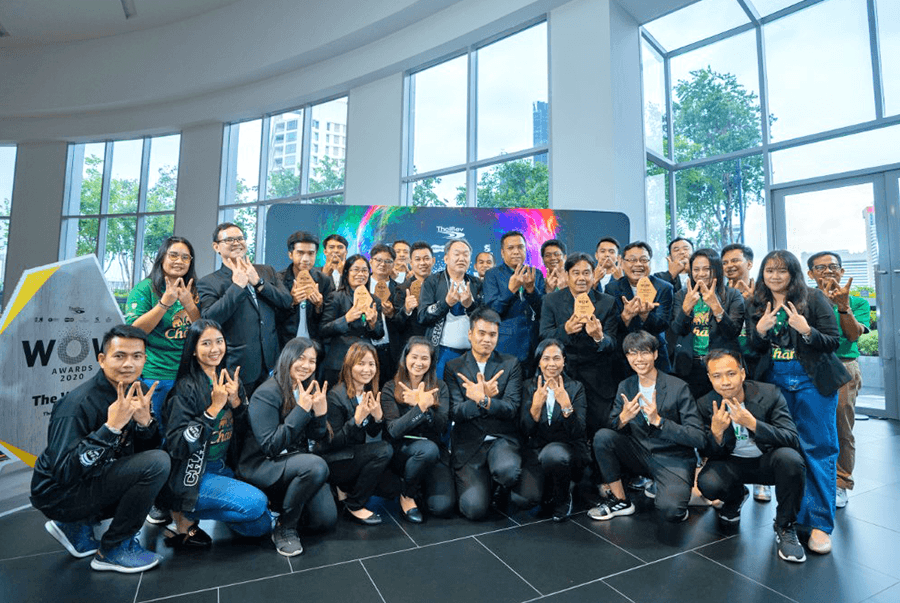
This year marks the third year ThaiBev organizes the
WOW (Way of Work) Award competition as a platform for
employees to present projects with new concepts, business
models, or processes that will support organization
effectiveness such as cost reduction and efficiency gain.
WOW competition also fosters corporate culture. Finalists
of the WOW Award competition have the opportunities
to present their projects or ideas to senior executives. In
2020, due to COVID-19 pandemic, oversea competitors
were not able to participate in person. Thus ThaiBev
organized virtual competition to support oversea participants
creating wider engagement. The WOW projects and ideas
are expected to reflect the following qualtieis:
-
Work processes that bring about
insights and understanding, which answer to ThaiBev
Group’s business needs.
-
Work processes that inspire people,
can be implemented and scalable in the real world.
-
Work processes that create significant
impacts and generate results that benefit ThaiBev Group
and its employees.
A new sustainability award is included in 2020 with the objective
to promote understanding on sustainability to participants and
judges. Participants present the sustainability angle of their
projects, from both ThaiBev and its stakeholders perspectives
by referring to UN SDGs
ThaiBev recognizes the importance of employee
engagement given that it is one of the best ways to receive
employee feedback which can be analyzed for organization
improvement, increases in employee engagement, unity,
and ability to support employees (in terms of work,
well-being, other opportunities, etc.) This year, ThaiBev
achieved significant increases in employee engagement
from 69% to 85% as a results of collaboration efforts
within the organization.
ThaiBev has developed the Beverest Life Application, an
employee engagement online survey, with 2 aspects,
which are:
1. Engagement through the “Say, Stay, Strive” model to
constantly develop better plans and engagement
building processes.
- Say – Employees are eager to talk about positive aspects of the organization.
- Stay – Employees have strong bonds and long-term commitments to the organization.
- Strive – Employees are determined to bring their best performance to the organization.

2. Employee apprehensions towards various indicators and
topics, such as organizational visions, safety and wellbeing,
work values, supervisors, internal communications,
compensation and benefits, etc.
ThaiBev focuses on the development of digital technology with the objective to create fast and efficient work. During the COVID-19 pandemic, Thai
effectively from anywhere. For instance, trainings are provided for digital tools like Zoom or MS Teams so everyone works smoothly and conducts meetings seamlessly. Moreover,
ThaiBev also utilized a digital check-in system to record
attendance together with tracking employees who live or
work in at-risk areas. The digital check-in system has also
been added to facilities, so that when employees return they
can avoid unnecessary contact from finger-scanning machines
to prevent the spread of COVID-19.
ThaiBev designs job families according to their functions,
provides opportunities for employees to progress, defines
career paths, improves capacities, and recognizes people’s
individual development plans in order to systematically
develop employees and help them to advance their careers,
as outlined in the following:
to develop their capacity to perform their roles and
responsibilities efficiently and receive pertinent
opportunities to advance in the organization.
Employees are divided into groups by job level, such as
Spring & Streams (operational), River (management),
and Ocean (executives). ThaiBev develops employee
potential, according to the 70:20:10 formula;
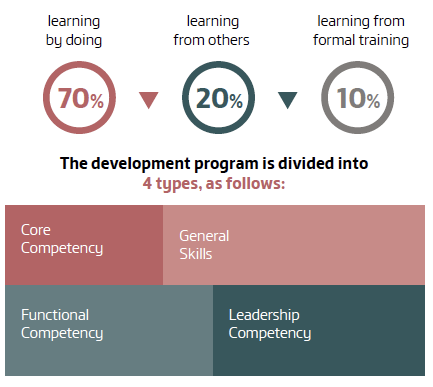
uses the Kirkpatrick Training Evaluation Model to
develop the capacity of employees with outstanding
potential through learning programs tailored to different
levels, from high-level executives to supervisor-level employees.
covers 100% of employees from officer to executive levels
(4 and above), in order to improve their weaknesses and
enhance their strengths, and to prepare them to progress
to a higher level within their job families. This also includes
follow-up programs to ensure that the plan has been implemented effectively and is achieving its goals. In this
regard, ThaiBev has achieved 100% of its goals.
The processes to develop IDP for employees in job families
include:
- Analysis of a career path and required competency in
designated job families
- Evaluates potential in job families in order to identify
competency gaps
- Develops IDP from evaluation results and career goals
in designated job families through Beverest, which is
ThaiBev’s human capital information technology.
IDP is also developed for employees at other levels from other
job families. For instance, supervisors create IDP through Beverest to track planned advancement.
was launched in 2019 for employees from 3 job families, including sales, finance and accounting, and human resources. This covers career opportunities for 5,400 employees.
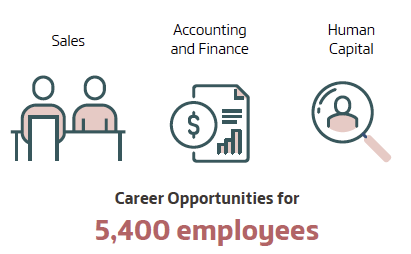

Talent development programs are designed to support
and enhance the capacity of employees at every level
through Learner Centric Principle, and by promoting their
business knowledge and leadership skills by applying the
70:20:10 formula and the “Learning by Doing” concept
and Action-Learning Project. The programs serve as a
platform for employees to present their ideas to help
ThaiBev achieve its visions, allowing ThaiBev executives
to see employee potentials. This is a more effective way
of learning than formal learning alone, for instance, these
projects includes Supervisory Development Program (SDP),
Management Development Program (MDP), ASEAN
Management Development (AMD), and Senior Executive
Development Program (SEDP), in which high-level
executives participate in events and give feedback
in order to develop ideas from case studies to
implementation.
Additionally, ThaiBev has developed Leadership
Competency Development Guidebook to assist the
selection of development activities under the 70:20:10
formula and to support the development of Individual
Development Plan (IDP).
In order to be ready for a new set of goals in 2025, which business change rapidly due to digital technology and
automation, it is necessary for ThaiBev to develop and equip employees with the capacity to respond and adapt
to changes through the development of their skills, both “ReSkill” and “UpSkill.”
Development of new skills for current and future
business landscapes by adjusting skills to match with
organizational strategies and rapid technological changes.
- Emphasize on basic and development
of new necessary digital technological
skills so they are ready for the future
digital age
- Transforming labor-focused skills to
effectively operate and control
advanced technology
- Employees whose job role may be
at-risk due to changes in business
landscape and strategy may require
additional skillsets to continue
performing.
Development of existing skills and expertise to continuously keep up with business in order to achieve target and buildup business advantage.
- Develop skills to work at regional
and global levels to serve
continuous business expansion
beyond Thailand.
- Develop skills in digital technology
and automation such as
communications, interactions,
information sharing through digital
tools and the security of digital
information and identities.
ThaiBev Sustainability Academy (TSA) was founded in
2019 with a mission to build corporate culture, promote
learning on sustainability development, and build capacity
among ThaiBev employees in every business unit, both in
Thailand and overseas, to work on the sustainability
principle and extend the scope of sustainability development
to cover the whole value chain and all ThaiBev stakeholders.
TSA holds academic activities related to sustainability,
including trainings, meetings, seminars, and knowledge evaluations on sustainability development for employees.
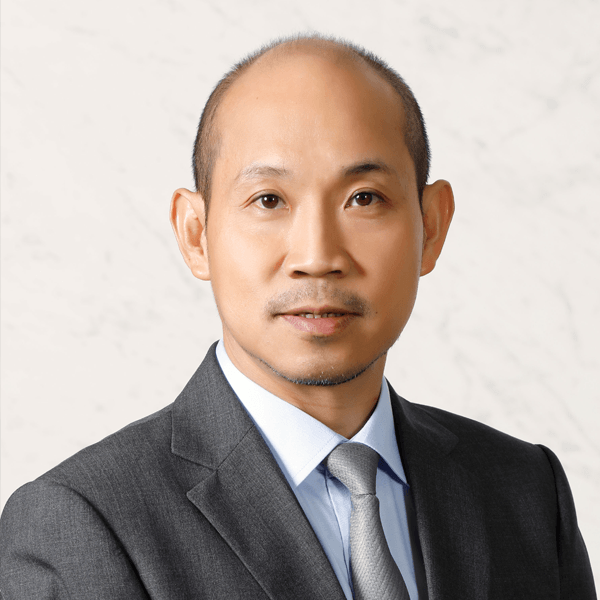
Executive Vice President
Thai Beverage Public Company Limited
Insight
“One key role of the academy is to sustainably develop
everyone’s capacity on sustainability.”
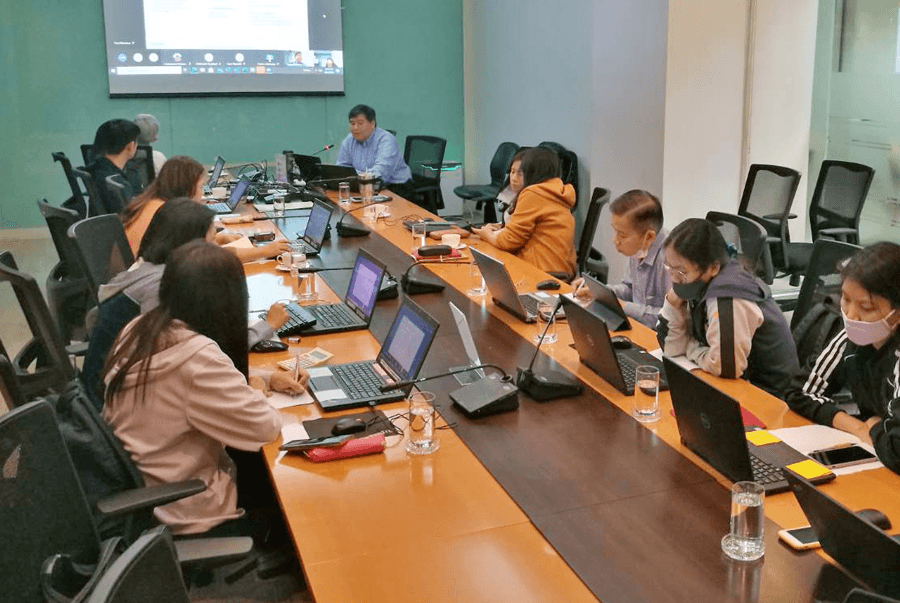
TSA focuses on promoting sustainability among all organizations under ThaiBev with an objective to develop employees
and executives so they are able to conduct self-evaluations and build knowledge to tackle sustainability development issues
so the organizations achieve their goals in business, environmental, social, artistic, and cultural aspects, and are in line with
the Sufficiency Economy Philosophy (SEP) and the United Nations’ Sustainability Development Goals (UN SDGs)
Moving Forward
in 2020 – 2025

1
Foundation Building

2
Value Creation

3
Sustainability Transformation

4
Sustainability Leader
1. Clear guidelines and
determinations for
sustainable development
for ThaiBev employees
2. Research and survey the
impacts of future trends on
sustainability and transforming
strategies to implementation
3. Create and share benefits
from collaboration between
business partners
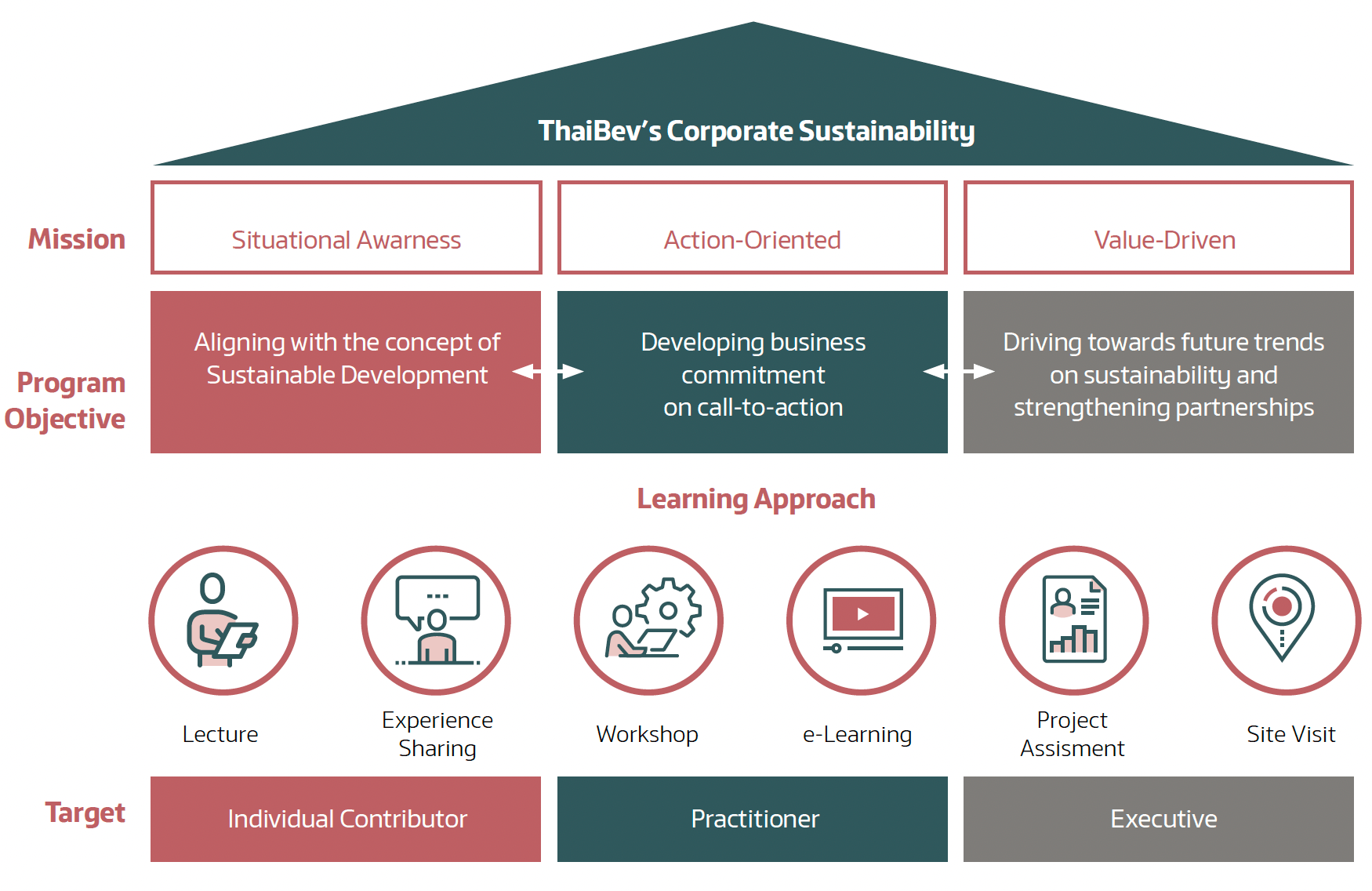
TSA designs and develops curriculums on sustainable
development in thought processes, skills, and operations
with the expectation that employees in all business units
will learn, understand, and be able to access knowledge
related to ThaiBev’s sustainability efforts, including from
global perspectives. This also includes adoption of
knowledge for employees to develop themselves, create
change in the organization, work more efficiently with
colleagues, support goals, and promote the Academy’s
sustainable growth through a learner-centric approach.
Employees from all levels who contribute their knowledge
and experience regarding sustainable development.
These employees have capacity and knowledge to work
with others and are able to perform as expected by
the organizations.
Groups of employees who have direct responsibility
on sustainable development in their specific knowledge
(deep-knowledge). They are practitioners and implementors
to achieve the organization’s sustainability goals.
Management team who can mobilize business strategies
to implementation in order to sustainably create value
for the organization and achieve the sustainable
development goals.
2020 Achievements
The 2020 fiscal year is the first year that TSA organized
sustainable development classes for 10,162 ThaiBev
employees and executives. These classes included trainings,
seminars, and tests to evaluate knowledge and understanding
of sustainable development.
TSA works with ThaiBev Training, ThaiBev’s training center,
to use the learning platform in the company’s Learning
Management System. This international-level software is
applied internally in the Beverest System, with the aim to
support human capital development to reach optimum
efficiency and to build a database on the development
of all employees, throughout their terms of employment,
together with constant improvement of this information
on their development.
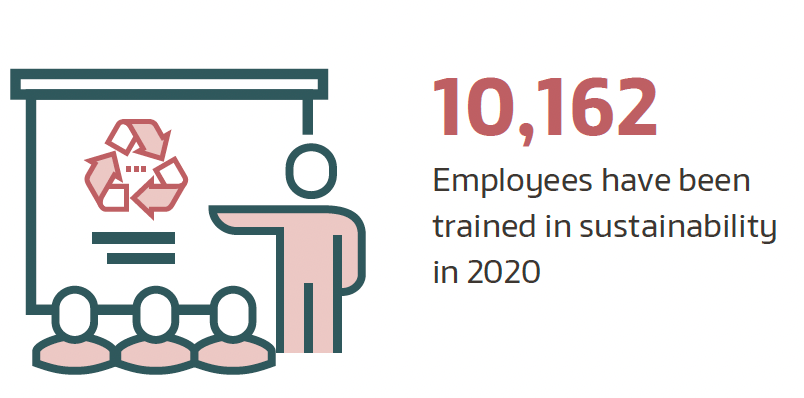
From more than a decade, ThaiBev has rotated staff on its
sustainability committee, together with experience from being
selected as Dow Jones Sustainability Index Indices (DJSI)
member in the Emerging Markets Index category for the
5th year, in the World Index category for the 4th year, and the
Industry Leader in the food and beverage industry for the
3rd consecutive year. ThaiBev, therefore, has employees working
in a rotation of the sustainability working team, including
working on various projects on the organization’s sustainability
development. During this time, more than 1,000 employees
and executives have co-created, exchanged, and shared
knowledge contributing to ThaiBev’s Best Practices to use in
the design and development of the academy’s curriculums,
together with the development of other projects and
dissemination of knowledge throughout the organization.
The academy plans to extend its membership of talented
individuals to include those who are in internal and external
ThaiBev organizations, both in Thailand and overseas, by
working with networks and partners, communities, experts
on sustainability, and specialists from around the world to
exchange knowledge and experience through workshops and
field visits. This will highlight ThaiBev as an organization that
prioritizes and advocates employee learning on sustainable
development, with dedication to create, express, and share
values of the growth toward the Vision of PASSION 2025.
Goals
Toward Vision of
2025

- Plan modules and teaching structure
- Use indicators from Training Need Analysis
- Better knowledge on
sustainability development
- Build collaboration between
implementers from all sectors
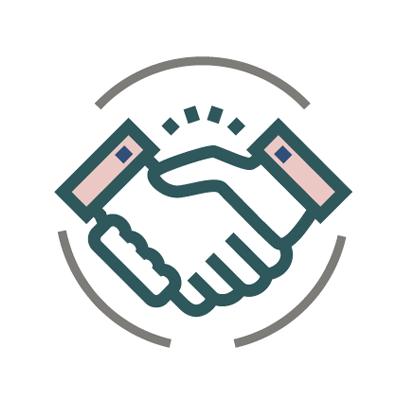
- Connect best practices from
both internal and external
organizations
- Develop and extend knowledge
on sustainability development
- Center of knowledge on
sustainability development
- Create and share knowledge on
sustainability development
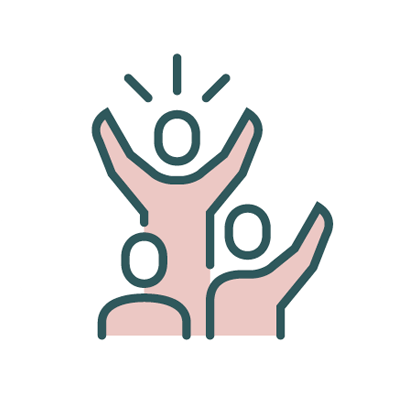
- Develop network of sustainability
development implementers
- Exchange in-depth knowledge
on sustainability development
- Develop implementer and
knowledge on sustainability
development
- Create corporate culture of
sustainability development



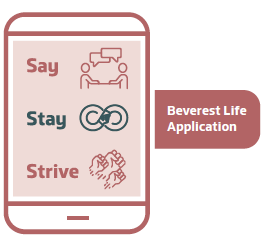



 Talent development programs are designed to support
and enhance the capacity of employees at every level
through Learner Centric Principle, and by promoting their
business knowledge and leadership skills by applying the
70:20:10 formula and the “Learning by Doing” concept
and Action-Learning Project. The programs serve as a
platform for employees to present their ideas to help
ThaiBev achieve its visions, allowing ThaiBev executives
to see employee potentials. This is a more effective way
of learning than formal learning alone, for instance, these
projects includes Supervisory Development Program (SDP),
Management Development Program (MDP), ASEAN
Management Development (AMD), and Senior Executive
Development Program (SEDP), in which high-level
executives participate in events and give feedback
in order to develop ideas from case studies to
implementation.
Talent development programs are designed to support
and enhance the capacity of employees at every level
through Learner Centric Principle, and by promoting their
business knowledge and leadership skills by applying the
70:20:10 formula and the “Learning by Doing” concept
and Action-Learning Project. The programs serve as a
platform for employees to present their ideas to help
ThaiBev achieve its visions, allowing ThaiBev executives
to see employee potentials. This is a more effective way
of learning than formal learning alone, for instance, these
projects includes Supervisory Development Program (SDP),
Management Development Program (MDP), ASEAN
Management Development (AMD), and Senior Executive
Development Program (SEDP), in which high-level
executives participate in events and give feedback
in order to develop ideas from case studies to
implementation. 










 TSA designs and develops curriculums on sustainable
development in thought processes, skills, and operations
with the expectation that employees in all business units
will learn, understand, and be able to access knowledge
related to ThaiBev’s sustainability efforts, including from
global perspectives. This also includes adoption of
knowledge for employees to develop themselves, create
change in the organization, work more efficiently with
colleagues, support goals, and promote the Academy’s
sustainable growth through a learner-centric approach.
TSA designs and develops curriculums on sustainable
development in thought processes, skills, and operations
with the expectation that employees in all business units
will learn, understand, and be able to access knowledge
related to ThaiBev’s sustainability efforts, including from
global perspectives. This also includes adoption of
knowledge for employees to develop themselves, create
change in the organization, work more efficiently with
colleagues, support goals, and promote the Academy’s
sustainable growth through a learner-centric approach.












































